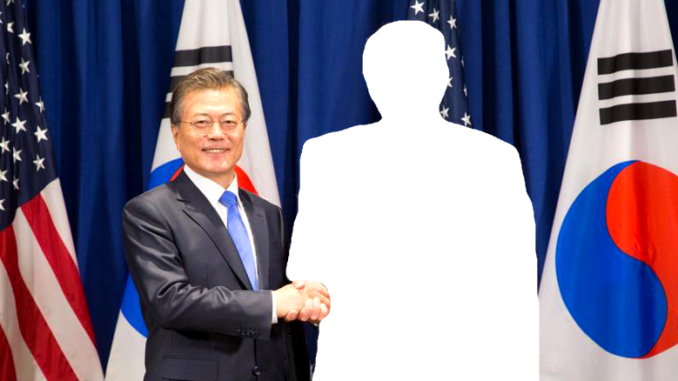
During a press briefing on Thursday, President Trump made an intentionally deceptive statement in an effort to self-aggrandize.
It is true that South Korea has agreed to pay substantially more toward upkeep of our bases in their country, but the increase to which they have agreed is dramatically lower than Trump continues to demand. The amount was negotiated back and forth between official representatives of the two nations, and the final number was a 13% rise year-over-year, with a tentative agreement reported by the Chosun Ilbo. Talks were expected to continue to discuss raising it a full 49% to $1.3 billion over the next five years.
President Trump personally shot down that proposal.
After initially demanding $4.7 billion next year, Trump has backed off to the $1.3 billion number, attempting to use the rudimentary negotiating strategy outlined in his books of beginning with an exorbitant demand and then backing off of it to a position which is merely greatly advantageous. The strategy is once again being demonstrated to be a complete failure.
South Korea is flatly rejecting Trump’s numbers. The Korea Herald quotes a senior official. “We can reach agreement tomorrow if we see some rational numbers. But we can’t be on board with $1.3 billion.”
The Chosun Ilbo spoke to both US and Korean sources about rumored threats. US sources have suggested that there will be a decline in troops stationed in the nation, and that Korean military leadership has been informed of this; the Korean leadership denies that such a threat has been delivered.
In theory, such a threat is unrealistic. There are provisions within the 2020 National Defense Authorization Act which prohibit any further drawdown of troops below current levels without certification by the DoD that it is in the national security interests of the country and that both South Korea and Japan have been appropriately consulted on the matter. The threat remains viable only if the Trump administration is willing to bypass the law and Congress.
The Trump administration has demonstrated a ready willingness to bypass both law and Congress.
Still, the current expectation from experienced observers is that South Korea is simply going to wait until the election is over; they expect that Trump is unlikely to be re-elected and that he will be occupying most of his time with election matters. This strategy will result in no agreement for increased cost sharing, with a potential result next year of Trump’s demands garnering absolutely no new money in exchange for considerable negative feelings from an ally.
